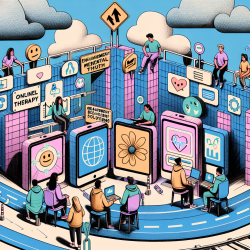Introduction: The Role of Online Therapy in Schools
In an era where the mental health of students is increasingly prioritized, the integration of online therapy services in schools has become a pivotal aspect of fostering a positive school culture. As government health regulators, understanding the impact of these services can help you make informed decisions that enhance the educational environment.
Understanding School Culture
School culture encompasses the beliefs, perceptions, relationships, attitudes, and written and unwritten rules that shape and influence every aspect of how a school functions. A positive school culture is characterized by a supportive and inclusive environment where students feel safe and valued.
The Impact of Online Therapy Services
Online therapy services, such as those provided by TinyEYE, play a crucial role in promoting a positive school culture by:
- Accessibility: Online therapy breaks geographical barriers, ensuring that all students, regardless of location, have access to mental health support.
- Flexibility: These services offer flexible scheduling, allowing therapy sessions to fit seamlessly into a student's school day without disrupting academic activities.
- Privacy: The virtual nature of online therapy provides a private setting, encouraging students to open up and engage more freely.
Data-Driven Outcomes
Research indicates that schools with integrated online therapy services report improvements in student behavior, academic performance, and overall school climate. Data from schools utilizing TinyEYE's services show a significant reduction in absenteeism and disciplinary incidents, highlighting the effectiveness of these interventions.
Why Government Health Regulators Should Take Action
As regulators, your role in shaping policies that support the mental well-being of students is critical. By advocating for the inclusion of online therapy services in schools, you can contribute to:
- Reducing Mental Health Stigma: Promoting these services normalizes seeking help, reducing the stigma associated with mental health issues.
- Enhancing Educational Outcomes: A supportive school environment leads to better academic performance and student engagement.
- Creating Equitable Access: Ensuring all students have access to mental health resources, regardless of their socio-economic background.
Conclusion: A Call to Action
The integration of online therapy services is not just an enhancement but a necessity for creating a nurturing school culture. By taking steps to support these initiatives, government health regulators can play a pivotal role in fostering environments where students can thrive academically, socially, and emotionally.










